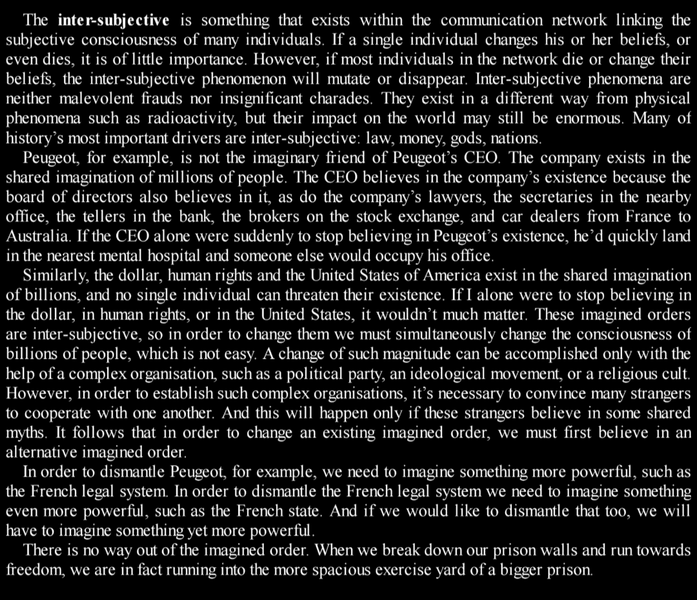Cognitive Revolutions

The board revolt at OpenAI reminds me of my favorite idea from Yuval Noah Harari’s Sapiens.
The idea of the imagined intersubjective order. Companies are concepts of our collective imaginations. We call them legal entities and assign liability to them. They can be a vehicle for capturing value created by humans. They receive tax assessments. They can even be sued — absolving the people in charge of direct responsibility.
Yet, a company can be dissolved and reincarnated elsewhere by having the employees simply say they resigned and have moved to a new company. And that's how we keep lawyers employed. Tricks of our own cognition.
Technological change is only possible with societal (behavioral) change
To use databases, you need to be able to think about your data in a structured way. The people who could do that gained most of the leverage from using databases. The folks who made it easy for people to transition to databases (ERPs and Co) captured the rest.
AI systems are fundamentally scalable decision making engines. And data is the oil required to power it. If you want to properly leverage AI, you need to make sure you're fueling it with the best refined data.
Otherwise, you're no different than the drunk trying to reliably operate complex machinery. The only repeatable part of that is injury.
The medium truly is the message
Tom White • Curation as a Cure
And it's much easier for the mind to wander these days. Algorithmic feed, so many random opinions and forms of content/news all in your palm
Joseph Henrich • The Secret of Our Success: How Culture Is Driving Human Evolution, Domesticating Our Species, and Making Us Smarter
Writing for Innovation
ayokan.me

